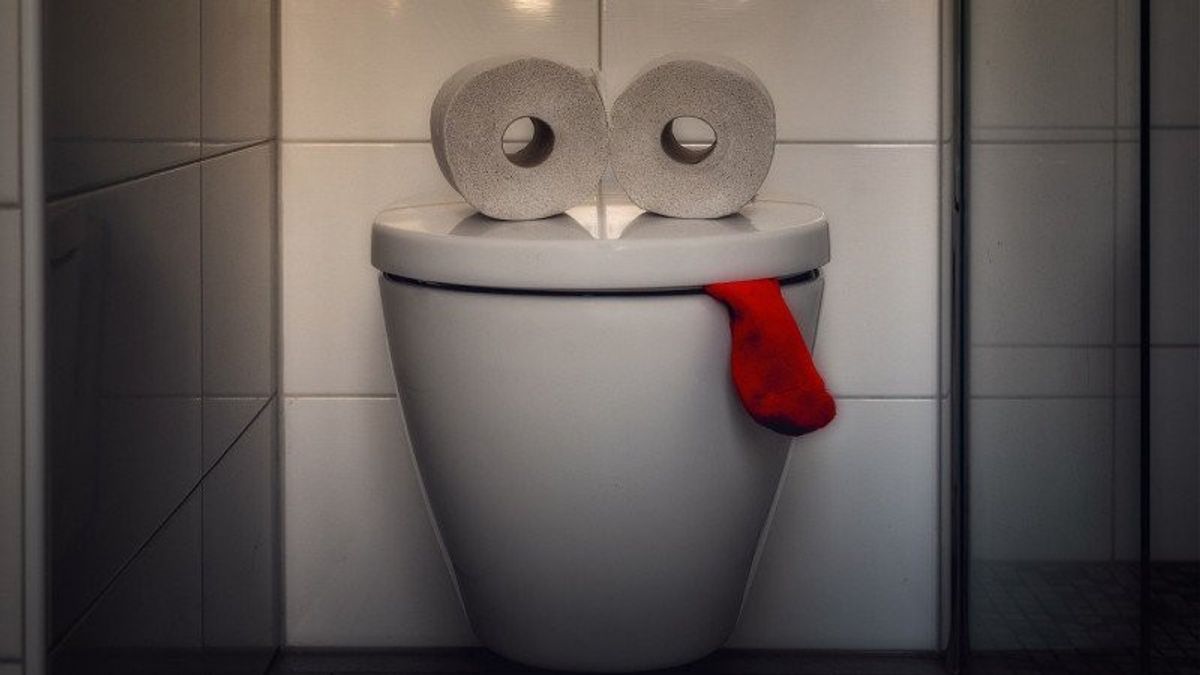JAKARTA - When defecating (BAB) try to occasionally see the shape of your stool. The shape of the stool can provide clues about the health of your gut.
Jacqueline Wolf, a gastroenterologist at Beth Israel Deaconess Medical Center, Boston, said there are at least seven types of stool ranging from hard to liquid clots, this is a sign that you have severe diarrhea.
According to him, as reported by Livestrong, type 3 or type 4 on the chart is often considered a normal form, which is shaped like a sausage with cracks on the surface (type 3) or really like a sausage or smooth snake. When you take it out, you don't tend to need to push it.
"Some people think the ideal stool is shaped like an" S. "If yours doesn't look like this, don't stress. I don't know why the stool will be shaped like an S," Wolf said.
Actually there is no perfect form of stool but there are some that are called unhealthy, namely types 1 and 2 which clump like goat dung, gravel or even thick. This type of stool usually indicates that you are constipated.
If you are constipated, your first course of action is to eat fiber-rich foods such as avocado, whole grain cereals or take fiber supplements. Remember to drink water along with the extra fiber you consume.
This method hasn't worked? You can try stool softeners to help make it easier to pass, but this is not a long-term solution to constipation.

On the other hand, there is what is called diarrhea, which is when the stool types 5, 6 and 7 are called watery stools. Type 6 or 7 doesn't usually occur all the time, says Wolf. A person is said to have diarrhea if they have three or more bowel movements a day, which is usually caused by a virus or food poisoning.
Chronic diarrhea can last for at least four weeks and may be a sign of an underlying health problem, such as irritable bowel syndrome (IBS), Crohn's disease, lactose intolerance or others. So, one of the important reasons to look at your stool is to know what is normal for you.
"In some people, type 2 or 5 may occur throughout their life. They don't need to get an evaluation from a doctor to see if anything is wrong. But if you experience changes in your stool or experience other symptoms such as stomach pain or weight loss with diarrhea. , immediately consult your doctor, "said Wolf.
The English, Chinese, Japanese, Arabic, and French versions are automatically generated by the AI. So there may still be inaccuracies in translating, please always see Indonesian as our main language. (system supported by DigitalSiber.id)













